Related Research Articles

John Nichols was an English printer, author and antiquary. He is remembered as an influential editor of the Gentleman's Magazine for nearly 40 years; author of a monumental county history of Leicestershire; author of two compendia of biographical material relating to his literary contemporaries; and as one of the agents behind the first complete publication of Domesday Book in 1783.

William Legge, 2nd Earl of Dartmouth, PC, FRS, styled as Viscount Lewisham from 1732 to 1750, was a British statesman who served as Secretary of State for the Colonies from 1772 to 1775, during the initial stages of the American Revolution. He is also the namesake of Dartmouth College.

Hungarton is a small village and civil parish in the Harborough district of Leicestershire, England, about 10 miles (16 km) north-east of Leicester and 13 miles (21 km) south-west of Melton Mowbray. The population of the civil parish was 269 at the 2001 census, including Ingarsby, and increased to 289 at the 2011 census.
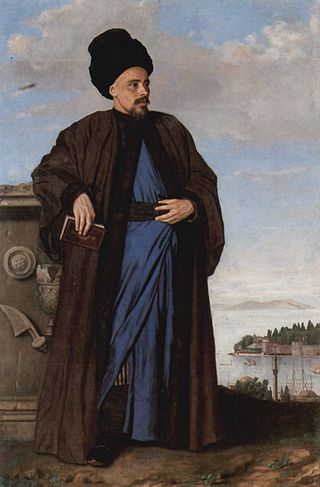
Richard Pococke was an English clergyman and writer. He was the Bishop of Ossory (1756–65) and Meath (1765), both dioceses of the Church of Ireland. However, he is best known for his travel writings and diaries.

Attakullakulla was an influential Cherokee leader and the tribe's First Beloved Man, serving from 1761 to around 1775. His son was Dragging Canoe, the first leader of the Chickamauga faction of the Cherokee tribes.
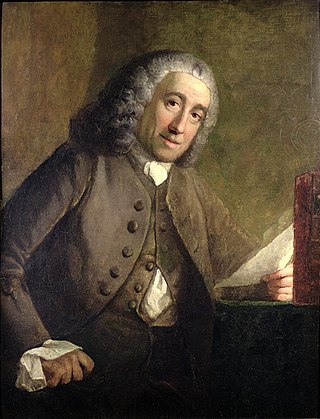
Francis Fauquier was a British colonial administrator who served as the lieutenant governor of Virginia from 1758 to 1768. Born in England to a Huguenot family, he emigrated to the British colony of Virginia to take up of the office of lieutenant governor. A teacher and close friend of Thomas Jefferson, Fauquier frequently hosted lavish parties for the American gentry as governor.

John Campbell was a Scottish author. He contributed to George Sale's Universal History, and wrote a Political Survey of Britain (1774). He was both prolific and well paid: according to James Boswell, Samuel Johnson spoke of Campbell to Joseph Warton as 'the richest author that ever grazed the common of literature.'
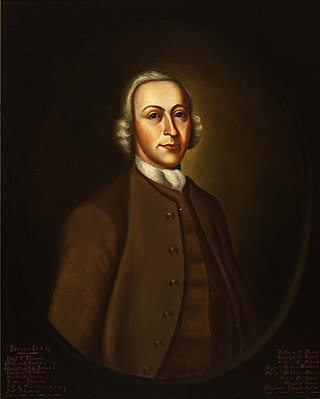
Peter Harrison was a colonial American architect in New England who is credited with bringing the Palladian architectural movement to the colonies.

Caroline Louisa Cavendish-Bentinck was the maternal grandmother of Queen Elizabeth The Queen Mother and a great-grandmother of Queen Elizabeth II.

Robert Smith was an English-born American clergyman, planter and prelate of the Episcopal Church who served as the first Bishop of South Carolina from 1795 to 1801.
Captain Edwyn Burnaby JP DL of Baggrave Hall, Leicestershire, was an English landowner, courtier, He was a maternal great-grandfather of Queen Elizabeth The Queen Mother and therefore a direct ancestor of Queen Elizabeth II and King Charles III.
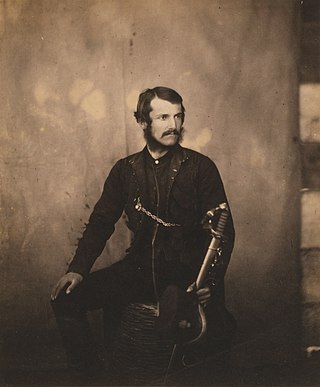
Edwyn Sherard Burnaby was a major-general and Conservative Party Member of Parliament (MP) for Leicestershire North from 1880 until his death. He served in the Crimean War.
Burnaby is an English surname. Notable people with the surname include:

Anne Caroline Salisbury was the wife of Edwyn Burnaby, and mother of Edwyn Sherard Burnaby and Caroline Louisa Burnaby. She is the direct maternal great-grandmother of Queen Elizabeth The Queen Mother, great-great-grandmother of Queen Elizabeth II, and great-great-great-grandmother of King Charles III.

Richard Penn Sr. was a proprietary and titular governor of the Province of Pennsylvania and the counties of New Castle, Kent, and Sussex, which then included present-day Delaware. He served as governor from 1746 to 1771. His father was William Penn, founder of the colonial-era Province of Pennsylvania, one of the original Thirteen Colonies in British America

John Atkins, of Halstead Place, near Sevenoaks, Kent, was an English politician.
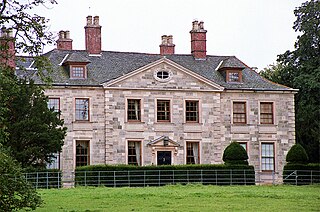
Baggrave Hall is an 18th-century Grade II* listed country house in the parish of Hungarton, Leicestershire, England. It is a two and three-storey building in Palladian style, constructed in ashlar in the 1750s, with a Swithland slate hipped roof and brick-ridge chimney stacks. An extra wing in red brick can be dated to 1776. The current grounds cover 220 acres. The hall was listed in 1951, but suffered serious damage from an owner in 1988–1990.

Algernon Edwyn Burnaby of Baggrave Hall, Leicestershire, was an English landowner, soldier, and Justice of the Peace, and a cousin of Queen Elizabeth, the Queen Mother. He was Master of the Quorn Hunt.
Virginia cloth was a coarse cloth made by natives of Virginia. The fabric has a record of existence in 1721 and was used for servants' wear. The material was a mix of cotton and wool.
References
- 1 2 3 Lee, Sidney (1886). . In Stephen, Leslie (ed.). Dictionary of National Biography . Vol. 7. London: Smith, Elder & Co. p. 379.
- ↑ Parish register
- 1 2 "Burnaby, Andrew (BNBY749A)". A Cambridge Alumni Database. University of Cambridge.
- ↑ Burnaby, Arthur (1775). Travels through the Middle Settlements in North America in the Years 1759 and 1760: With Observations Upon the State of the Colonies. Dublin, Ireland: R. Marchbank. p. 206.
- 1 2 P. Townend, ed., 1965, Burke's Landed Gentry, 18th edition, pp. 102–105. Burke's Peerage, London.
- 1 2 A. R. Wagner, 1940, "Some of the Sixty-four Ancestors of Her Majesty the Queen". In: Genealogist's Magazine vol. 9, no. 1, pp. 7–13.
- 1 2 Memorial inscription in Hungarton parish church